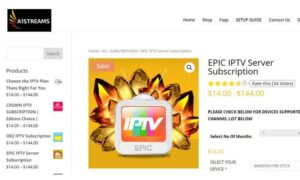Founded in 1964 as a way to encourage the “inventiveness” of the Hebrew University of Jerusalem’s staff, Yissum Research and Development Company seeks to support and encourage research, development and education in their efforts to turn science into commercial products for society. Yissum is charged with the not insignificant task of protecting HU’s inventions, products and technologies. Serving as the Technology Transfer Services for the university, Yissum focuses on the ongoing assessment, protection and commercial optimization of the university’s intellectual property.
In their 40-plus year history, Yissum has perhaps surpassed expectations, with reported annual revenues in excess of $ 40 million, mostly from royalties, and properties ranging from long-shelf-life tomatoes to treatments for cancer and Alzheimer’s disease, placing the Hebrew University in the world’s top 15 academic institutions as measured by revenues from intellectual property sales.
Protect, Partner, Perform
As the Technology Transfer University for HU, Yissum serves not only to protect the university’s intellectual properties, but also to partner with researchers and worldwide businesses to develop commercial markets, and through licensing, establishing companies, joint ventures and collaborative research, enhance the market value and performance of HU’s discoveries, increasing their availability to a global marketplace.
The arrangement has a track record of success. Hebrew University generates approximately $ 1 billion in annual sales from products in its IP base and Yissum represents over 250 licensed technologies and 60 spin-off companies. The numbers keep adding up with over 3,000 ongoing research projects, 1,200 researchers, 1,400 registered patents and 5 Nobel laureates, all representing 40% of Israel’s civilian scientific research. The range of intellectual properties includes a diverse mix of industrial and therapeutic areas, including biotechnology, nanotechnology, medical research and technologies, pharmaceuticals, agriculture and nutrition, water and environmental technologies, computer science and software development, homeland security and more.
The seemingly endless supply of promising research projects come from the university’s research base; supported by an annual budget of over $ 77 million, allowing Yissum to take advantage of Technology Transfer Opportunities by identifying appropriate commercial partners, negotiating license agreements, creating spin-off companies and working closely with local and global commercial partners.
Recent news items focus on the medical arena, with HU’s concept of using cellular technology to send X-rays and other medical diagnostics. The new technology would allow for the use of a smaller, less expensive and easier to use Data Acquisition Device (DAD) at remote patient sites, which would be connected via cell technology with advanced image reconstruction at a central site. The implications are far-reaching and could serve to bring advanced medical technology into areas that otherwise could not afford to have it at their disposal; bringing MRIs, X-Rays and other medical diagnostics into rural and third-world areas.
Technologies Supported
Reading through Yissum’s list of products and companies is like reading a Who’s Who directory of the medical and technological worlds. The lists are full of recognized names, successful products and companies that make headlines on a regular basis.
Products from Yissum include Alzheimer and dementia treatment Exelon, dry-eye treatments Cationorm and LO2A (Lacrycon, Dropyal), ovarian cancer treatment Doxil (Caeylx), UV-protection product UV-Pearls–already adopted by major companies for sunscreens and cosmetics, and a variety of other pharmaceutical products. Oh, remember those long-shelf-life tomatoes? That would thanks to BonTom Vegetable Breeding and Research Group, from HU, of course. Another agricultural product from Yissum and Hazera Genetics is the Ram Onion. On the software side, there is Making Better Career Decisions, an interactive, Internet based career-guidance and information system.
Looking over a partial list of companies shows even more diversity, touching on pharmaceuticals, biotech, agriculture and irrigation, water treatment, software development, safety, nanotechnology, and medical technologies, research, development and devices.
Water treatment technologies like En Gibton Ltd and Treatec 21 Industries Ltd; agricultural endeavors Leafsen Irrigation Systems Ltd, Kovax Ltd–vaccines for the aqua culture world, Avian Tech Ltd, and Ravgalai Ltd–detection of antibiotic residues in milk, meat and food products are just the start of the list. Technology and software development come into play with Ex Libris Ltd–high-performance applications for libraries, Mobileeye Vision Technologies Ltd–with automated, on-board driver assist systems and MusicGenome Inc–a system of identifying musical taste based on artificial intelligence.
Perhaps the heaviest area of development is in the medical and pharmaceutical arenas with a long list of companies researching and developing treatments for cancer–including Algen Pharmaceuticals Inc–basically “tricking” cancer cells into “committing suicide.” Other treatment technologies focus on infectious and autoimmune diseases, rheumatoid arthritis and improving the efficacy of vaccines; even delving into the “nutraceutical” field with carriers for nutraceuticals to be incorporated in food systems and cosmetic formulations.
Technology Transfer Services
Yissum serves the Hebrew University, protecting its intellectual properties and moving forward with innovations and technologies into commercial endeavors, ultimately, serving the world community as well as the university through applied chemistry, physics, life science and biotechnologies, water technologies, nanotechnologies, and even veterinary medicine and agricultural technologies. It’s easy to see why Yissum is so highly regarded in the scientific and academic communities and ranks among the top Technology Transfer Services in the world.



